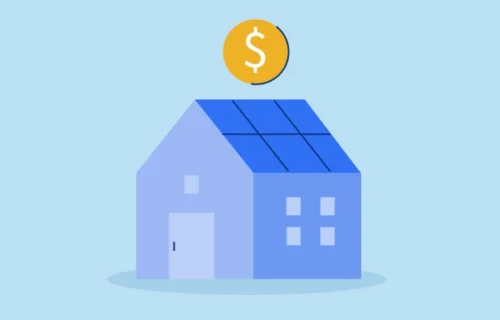
Connect with a Lima One expert today!
If you’d like to know more about this topic or see how it applies to your project, let’s talk.
Expert InvestorsReal Estate 101Scaling Your Portfolio
Economic Factors & Housing Market Predictions: A Comprehensive Analysis
For real estate investors, understanding the intricate relationship between economic factors and housing market predictions is paramount to making informed investment decisions.
Whether you’re a seasoned investor or just starting, comprehending how economic variables influence the housing market can help you make informed decisions.
In this blog, we will delve into:
- Key economic factors that influence housing market predictions.
- Real estate investment strategies that align with economic trends.
- Ways investors can recession-proof their real estate investments.
Unraveling the Impact of Economic Factors on Housing Market Predictions
It’s unclear whether the United States will experience a recession in 2023 by the textbook definition, but it is clear that economic uncertainty has prevailed. Rising interest rates and bank failures are among the ominous clouds that seem to hang over the entire economy.
The good news is that the housing market has proven durable through most economic cycles. Despite changes in the housing market forecast, fluctuation of home prices, and inventory issues, real estate investors have found ways to make profits. The trends in 2023 thus far reflect this.
While the current cycle has proven profitable for real estate investors who continue to find deals and make money, investors should consider several economic factors.
Interest Rates and Housing Market Predictions
Interest rates set by the Federal Reserve play a pivotal role in housing market predictions because of their immediate impact on mortgage interest rates.
When rates are low, borrowing becomes more affordable, enticing buyers and stimulating demand.
Conversely, rising interest rates curb housing market activity, as higher mortgage rates make homeownership less attainable and refinance less attractive.
Real estate market forecasts must factor in the prevailing interest rate climate to gauge future trends accurately.
Housing Affordability and Price Growth
Housing affordability is a critical concern for both buyers and investors. It directly impacts housing market predictions and price growth.
As prices rise, affordability diminishes, potentially leading to a slowdown in home sales.
Price growth, influenced by supply and demand dynamics and economic factors, significantly affects the overall health of the real estate market.
However, it’s important to note that price growth can be a positive for real estate investors with single-family portfolios or multifamily properties.
Listed Prices and Housing Prices
Listed prices, the initial asking prices for homes, are closely monitored by real estate agents and investors. These prices often reflect sellers' expectations and market conditions.
On the other hand, housing prices represent the actual sales prices of homes.
Economic factors can influence listed and housing prices, affecting market predictions and investment decisions.
Watching the delta between these two provides insight into any housing market.
Sales prices above asking indicate a hot market; sales below the initial listing price can mean a market slowdown that investors need to monitor.
It’s best to analyze these trends on the local market level rather than national trends.
Recession Proof Your Real Estate Investment Strategy
While investors can have confidence amid economic turbulence, they must take extra steps to carefully plan their strategies for flipping houses or building a portfolio to help make precise housing market predictions.
Think of these steps as recession-proofing your real estate investment business. Just as you make sure to waterproof a tent before going camping when the forecast calls for chances of rain, investors can take the following steps to recession-proof their strategies in an economic forecast with the option of storms.
If you’re wondering how to recession-proof your investment, look at these three economic fundamentals our team focuses on when evaluating loans. These factors will help investors, no matter their experience level, get a more detailed look at the economy than the 30,000-foot question of whether we are in a recession—and this detailed yet easy-to-do analysis will help savvy investors succeed.
Local unemployment numbers
One of the critical factors to the success of real estate investors in any market is whether people who live in that market can afford to rent the houses they own or buy the homes they flip.
The best way to get a sense of the health of people’s paychecks is to watch unemployment numbers.
Investors need to look at unemployment numbers not just on the national level but in local markets.
If you have an investment property in Pittsburgh, Philadelphia, unemployment in California won’t directly impact your profitability.
But local unemployment numbers matter a lot.
Investors can also look at big employers coming into a market or significant business or plant closures near their properties to predict near-term changes in the unemployment rate in a specific market.
Be conservative when running the numbers
When the economy is growing and the real estate market is booming, as in 2020-22, it’s safe to assume that rents will go up and that home prices will appreciate.
But when the economy is slower, these are no longer safe assumptions.
Forecasting rental market trends is more arduous in 2023. Interest rates are higher, which adds to the expenses for an investor who owns a rental property.
Additionally, rents have flattened out nationally. Rent levels have maintained mainly the increases of the past 2-3 years, but they aren’t increasing now.
The key here is having a clear view of what’s happening in a market and then making choices that will lead to profit, whether the market improves, stagnates, or even lags.
When you get worried, look at the inventory
It may seem like the real estate housing market of 2023 is creeping along because transactions of all kinds have dropped.
But it’s important to know that transactions are so slow because there aren’t enough homes for sale.
Home prices were skyrocketing at the height of the pandemic, and inventory was at one month of supply or less.
Analysts consider six months of supply to be “normal” inventory. Things have slowed down a little, but stock is still under three months of supply in most markets.
Home prices are stable (meaning they have retained the value created when home prices increased 35% between 2020-22), and that time-on-market remains low, indicating that demand is strong for homes that hit the market.
How to Navigate a Changing Market to Make Better Housing Market Predictions
The housing market is not isolated but deeply intertwined with the broader economy.
To make accurate housing market predictions, investors must consider the impact of economic factors such as interest rates, housing affordability, home prices, unemployment rates, and more.
When an investor finds the right property that will cash flow, Lima One is ready to help with the financing they need. We offer various loan options and structures, including interest-only, 30-year fixed rate, and ARMs.
Contact us today to discuss your next deal, or if you have an agreement in hand, speed up the process by applying now.
Subscribe for More Insights
Get the latest industry news & Lima One updates.









